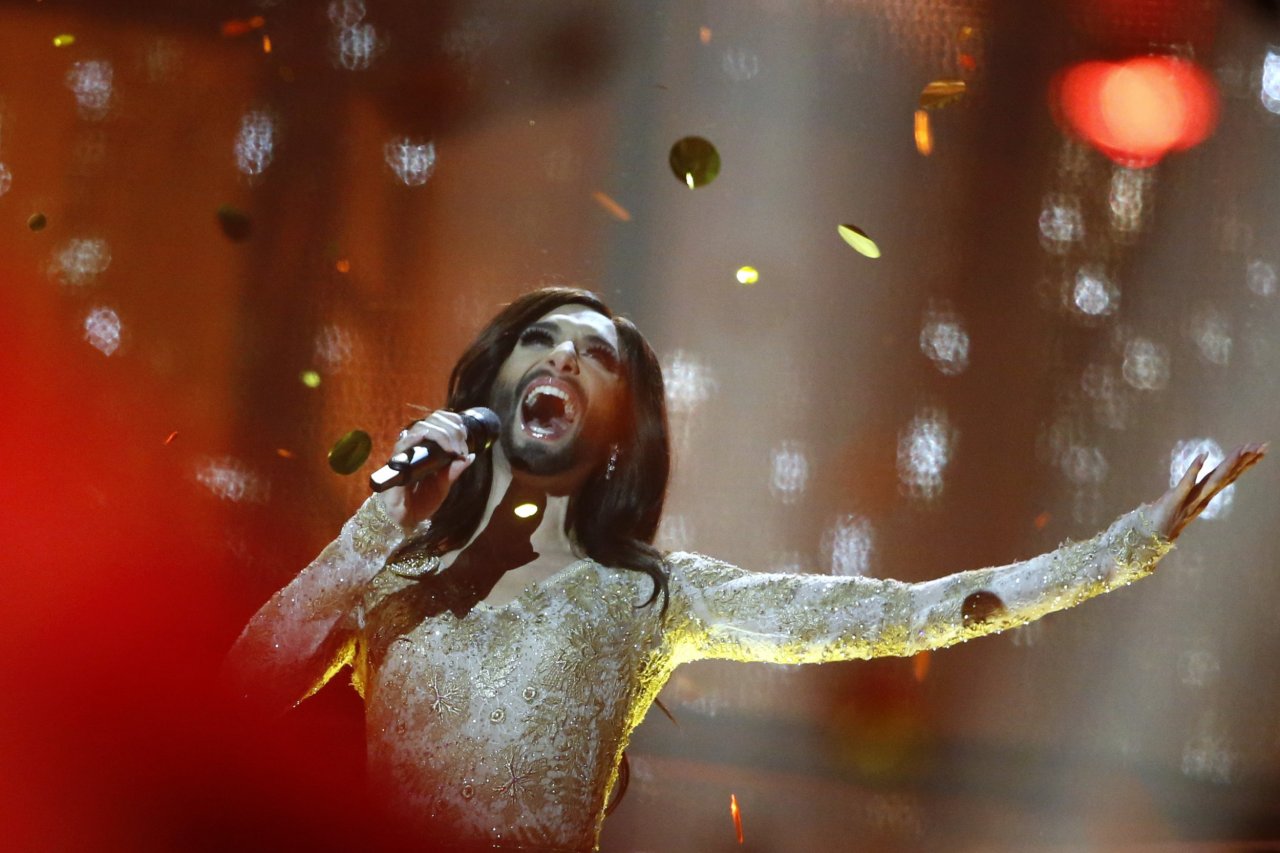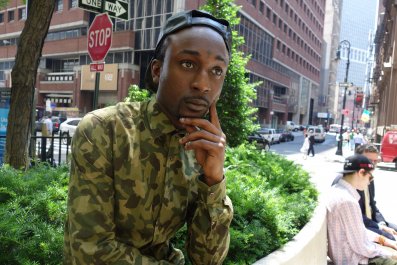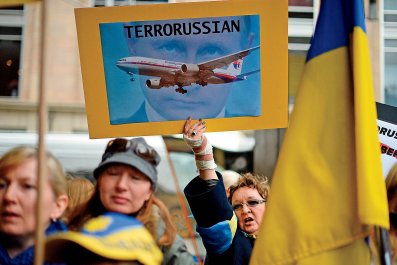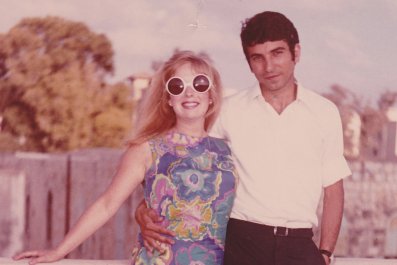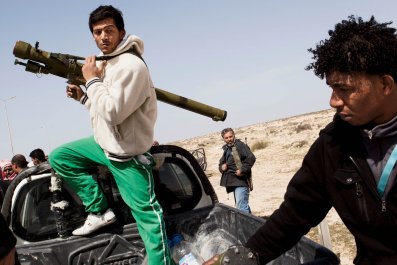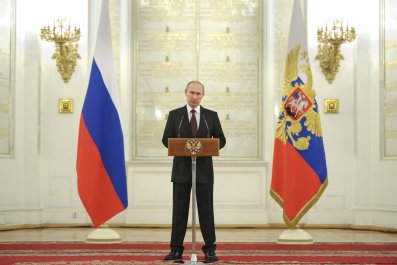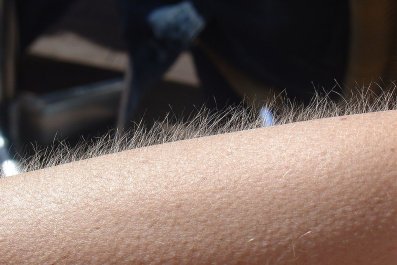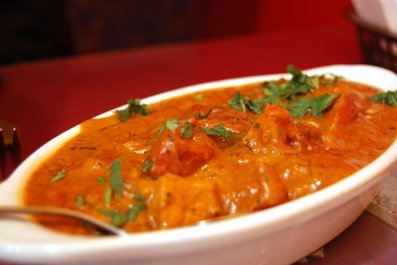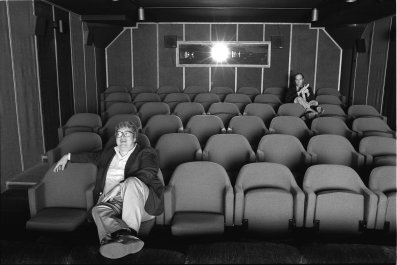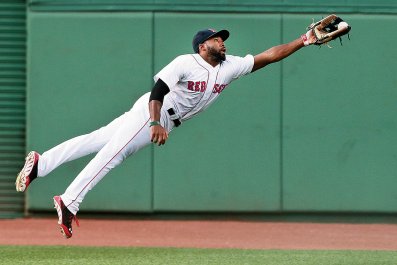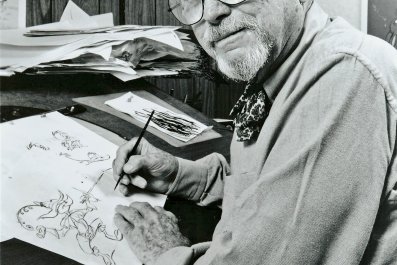When Conchita Wurst raised her microphone-shaped winner's trophy at the Eurovision Song Contest in May, she smashed through a lavender ceiling. Boy George described her victory as "a vote for gay solidarity". Lady Gaga tweeted that Wurst, "slayed with her beautiful vocals and message of freedom and equality". Cher called her "fascinating", adding that she deserves a better name and wig. "This is not shade," she tweeted. "I respect and admire your resolve."
Not everyone joined the chorus. Russian politicians interpreted the result as a sign of moral decay in the West. "This is the end of Europe," railed Vladimir Zhirinovsky, the leader of the Liberal Democratic party of Russia. "It's rotted away. There are no more men and women. There is just 'it'."
Valery Rashkin, the deputy leader of the Communist Party, demanded that Russia leave the frothy competition and establish a heterosexual alternative, tentatively called The Voice of Eurasia. "The last Eurovision results exhausted our patience," he told the Interfax news agency. "We cannot tolerate this endless madness."
Now he's getting his wish, albeit in a slightly different guise. This October Russia will revive Intervision, the Soviet alternative to Eurovision, which ran from 1977 until 1980. Following a similar format to Eurovision, which has been running since 1956, Intervision brought together aspiring Socialist pop stars, mostly from the Eastern Bloc and Cuba. Contestants gathered annually in Sopot, Poland and battled it out through song, hoping to show that Communist states could produce pop music as well or better than their capitalist rivals. Yugoslavia, which followed a policy of non-alignment, and Finland, which viewed itself as a mediator between East and West, competed in both Eurovision and Intervision.
Depending on the year, the Intervision winner walked away with flowers, crystal or a small Fiat automobile. Marion Rung, a well-known Finnish pop star, won the contest in 1980 with the song Where is the Love, and received a small gift from the hosts. "When I opened it money flew all over the stage," she says. "It was a little box and a lot of money." Other perks followed: "It became a gold record and I was treated like a queen when I returned to Finland."
More than three decades later, in a re-aligned Europe, the rebooted Intervision will have a much shorter roster of competing nations. Gone are Hungary, Poland and Romania, all of whom now compete in Eurovision. Instead, it will showcase contestants from the six member states of the Shanghai Cooperation Organisation (SCO), a body that Russia sees as a counterweight to Nato, and includes China and the former Soviet states of Kazakhstan, Kyrgyzstan, Russia, Tajikistan, and Uzbekistan.
"The first Intervision was about challenging the West and this Intervision is about reaffirming Russia as a force to be reckoned with," says Dean Vuletic, a historian at the University of Vienna. "It's no coincidence that it will be held in Sochi, which Putin used to showcase modern Russia during its Winter Olympics."
In many ways, Intervision seems like a vehicle to help Russia lick its wounds following the most recent Eurovision. During the 2014 contest, the Russian act, a pair of 17-year-old twins named the Tolmachevy Sisters, faced an openly hostile audience. As the girls stood on a gigantic seesaw singing about love, the crowd hissed and booed, not over the singing, but rather the annexation of Crimea (Ukraine finished ahead of Russia in the final vote) and Russia's draconian homophobic legislation (fans unfurled gay pride flags during the live broadcast).
At the end of the show, the bearded drag queen put the final nail in the coffin. "This night is dedicated to everyone who believes in a future of peace and freedom," Wurst said through mascara-stained tears. "You know who you are. We are unity and we are unstoppable."
With more than 195 million viewers, Eurovision gave Russia a very public slap in the face – and one that would have resonated with the Russian political elite who view Eurovision as a barometer of the country's cultural and political influence. They do not react well when satellite states fail to reward Mother Russia's efforts. During the 2013 contest, for instance, Azerbaijan did not give the Russian singer any points for her soppy ballad about world peace. Afterwards Russian Foreign Minister Sergey Lavrov called the incident "outrageous" and summoned his Azerbaijani counterpart to Moscow for emergency talks. Ilham Aliyev, Azerbaijan's strongman president, ordered a recount. Surely Russia can expect an easier time singing against its SCO allies.
In the wake of Russia's public embarrassment, many Russians are already singing the praises of Intervision. Igor Matvienko, one of Russia's leading producers and the main songwriter for Lube (pronounced "Lyubeh"), a rock band known for performing military songs, has helped Russia select its Eurovision contestants on several occasions. Yet he's decidedly cold about the contest now that Intervision is back in play.
"With notably rare exceptions, Eurovision has never been an important platform for Russian musicians," he says, glossing over the fact some of the country's biggest pop stars have competed. "That's why a resurrection of such an international contest like Intervision is of utmost importance both for Russia and the whole world."
Or at least to the contest's Eurasian audience. Alexander Cooley, a professor of political science at Barnard College in New York, believes Intervision fits into Putin's broader cultural diplomacy agenda. "Russia uses the Shanghai Cooperation Organisation as an arena to build its non-western links, including cultural exchange," he says. "An alternative to the Eurovision Song Contest fits very well into that pattern by creating a space for Russia to partner with China in opposition to the West."
Putin first proposed reviving Intervision at an SCO meeting in 2009. Surely he is thrilled that Russia was the first competing nation to choose its contestant – a 19-year-old singer named Alexander Ivanov, who bears a passing resemblance to Evgeni Plushenko. Naturally jurors selected him at a contest staged in Crimea.
The location for that contest may fit with Russia's recent political agenda, but the jury's motivation for selecting him does not. Matvienko, the producer and an Intervision juror, says Ivanov won the day for showing a bit of Western flair. Apparently jurors were influenced by the fact that he reminded them of David Coverdale, the lead singer of Deep Purple and Whitesnake.



